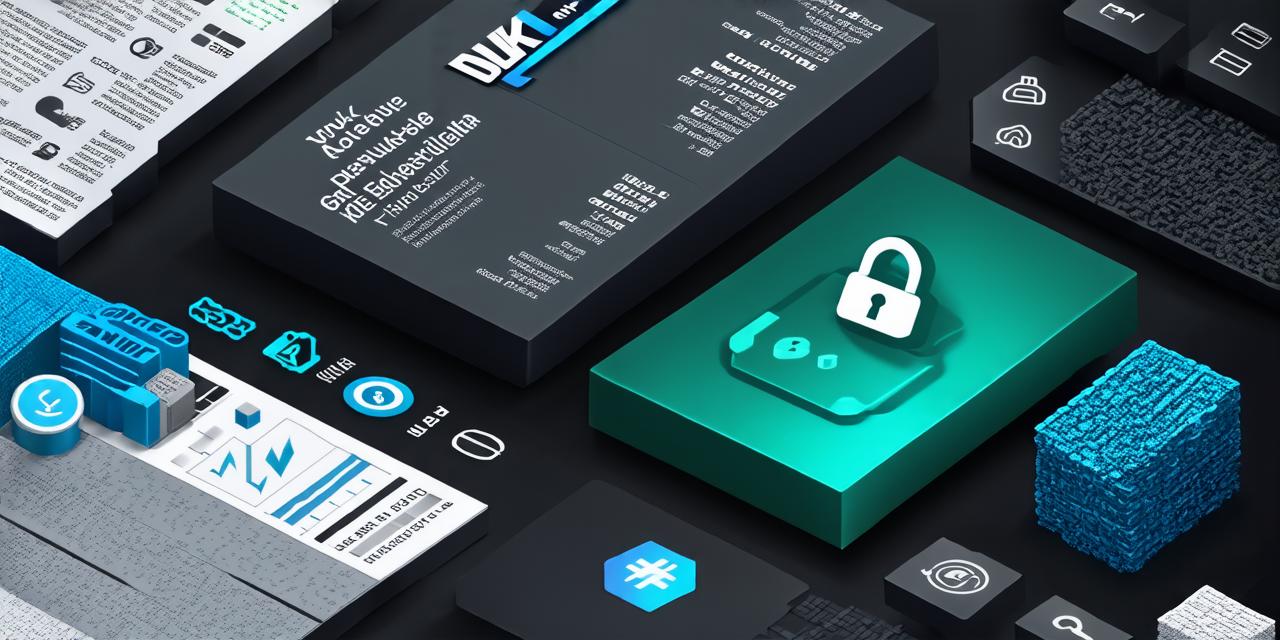Block cryptography is a type of cryptographic technique that is used to secure and verify transactions in decentralized systems such as Bitcoin. It operates on the principle of consensus, where multiple nodes or participants agree on the validity of each transaction before it is recorded in a public ledger called a blockchain. In this article, we will delve into the intricacies of block cryptography, its benefits, and potential challenges.
Understanding Block Cryptography
Block cryptography is based on the concept of proof-of-work (PoW), where miners compete to solve complex mathematical problems to validate transactions. The first miner to solve the problem is rewarded with newly minted coins, and their solution is added to the blockchain as a new block.
Each block contains several pieces of information, including a timestamp, the hash of the previous block, a list of transactions, and a proof-of-work solution. The hash of the previous block is used to create a cryptographic link between them, making it difficult for anyone to alter the transaction history without being detected.
Benefits of Block Cryptography
One of the most significant benefits of block cryptography is its ability to provide security and transparency in transactions. Because each transaction is verified and recorded in a public ledger, there is no need for intermediaries such as banks or payment processors. This eliminates the risk of fraud and reduces transaction fees.
Challenges of Block Cryptography
Despite its numerous benefits, block cryptography also faces several challenges. One of the most significant is the issue of scalability. As more users join a network, the number of transactions increases, which can slow down the verification process and increase transaction fees.
Another challenge is energy consumption. The PoW consensus mechanism used in Bitcoin requires an enormous amount of computational power, which consumes vast amounts of electricity. This has led to concerns about the environmental impact of block cryptocurrencies.
Block Cryptography vs Traditional Cryptography
Traditional cryptography relies on symmetric-key encryption algorithms such as AES and RSA to secure data. In contrast, block cryptography uses public-key cryptography, where each user has a unique pair of keys that are used for encryption and decryption.
Public-key cryptography provides several advantages over traditional cryptography, including greater security and scalability. However, it also requires more computational resources and can be slower to process transactions.
Real-Life Examples of Block Cryptography in Action
Block cryptography is not just limited to Bitcoin. It has found applications in various industries, including supply chain management, voting systems, and identity verification.
For example, Walmart uses block cryptography to track the origin of its products, from raw materials to finished goods. This helps prevent counterfeit products from entering the supply chain and ensures that customers receive authentic products.
In the field of voting systems, block cryptography is being explored as a way to provide transparency and security in elections. Blockchain-based voting systems can help prevent fraud and ensure that each vote is counted accurately.
FAQs
What is the difference between block cryptography and traditional cryptography?
Block cryptography uses public-key cryptography, while traditional cryptography uses symmetric-key encryption algorithms.
How does block cryptography provide security and transparency in transactions?
Each transaction is verified and recorded in a public ledger called a blockchain, making it difficult for anyone to alter the transaction history without being detected.

What are some challenges faced by block cryptography?
One of the most significant challenges is scalability, as the number of users joining a network can slow down the verification process and increase transaction fees. Energy consumption is another challenge due to the PoW consensus mechanism used in Bitcoin.
What are some real-life examples of block cryptography in action?
Block cryptography has found applications in various industries, including supply chain management, voting systems, and identity verification.
